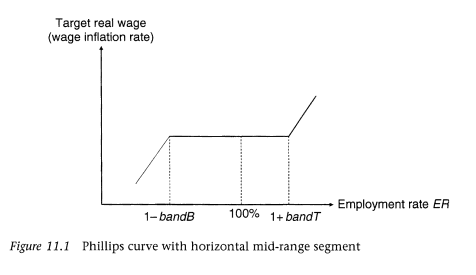Paul Krugman has a new article, Trump’s Twin Deficits (Wonkish), for The New York Times. The main point of the article is that Donald Trump doesn’t like trade deficits but ironically his policies (tax cuts with a rise in government expenditure) will cause more trade deficits.
Now, needless to say, Trump has to be resisted and we need an alternative. Apart from his xenophobia and racist attitude, he has also done a lot of economic damage by shifting an already unfair distribution of the national income in billionaires’ favour.
But the discussion shouldn’t end there because for one thing, economies always need a fiscal stimulus, despite the fact that economists such as Krugman make us believe that the US is at full employment and are telling us that expansionary fiscal policy is illegitimate. But Krugman and others are actually a bit late about the twin deficit part.
Before discussing twin deficits, it should be clarified what the casualties are. It’s not surprising that the two deficits are related. It is because of the national accounts identity:
NL = DEF + CAB
where NL is the net lending of the private sector as a whole, DEF is the government deficit and CAB is the current account balance of payments.
The current account balance is in deficit if it is negative and the trade in goods and services is part of the current account. That the two deficits are related by an accounting identity doesn’t imply that the budget deficit causes trade deficits. The right causality between the balances is (for given trade elasticities) from demand, income and output at home and abroad. So it’s not necessary that the two deficits move together. Even the economic and financial crisis hit, some ten years ago, US output fell and this raised the budget deficit because of a fall in income and hence taxes and also reduced the trade deficit. Over the next many years, and going forward, we can say the two deficits move together, although remembering the causality above—which is not: budget deficits cause trade deficits.
Now coming back to Krugman and Trump, what’s needed is an alternative to Trump but just the “centrist” attitude of not doing anything isn’t the solution. Paul Krugman had been advocating expansion of fiscal policy till as late as before the US elections, i.e., November 2016 but when the administration changed, he is no longer a fan of fiscal policy. It’s surprising (or maybe not!) that Republicans are advocating an expansionary fiscal policy while opposing it when not in power. Ironically, the same is true of Democrats such as Paul Krugman!
Krugman could have instead suggested that Trump asks other governments to expand fiscal policy, so that their imports also rise and the US trade deficit isn’t affected because of the change in fiscal stance, which he is unlikely to do.
The important point is that there is always the case for fiscal stimulus. The really big constraint is the capacity to produce. But this requires not just coordination of fiscal policy between governments but also agreements via planned trade to reach balance of payments targets instead of orthodox beliefs like free trade, the existence of market mechanisms to resolve imbalances and the belief that the fortunes of nations will converge.

